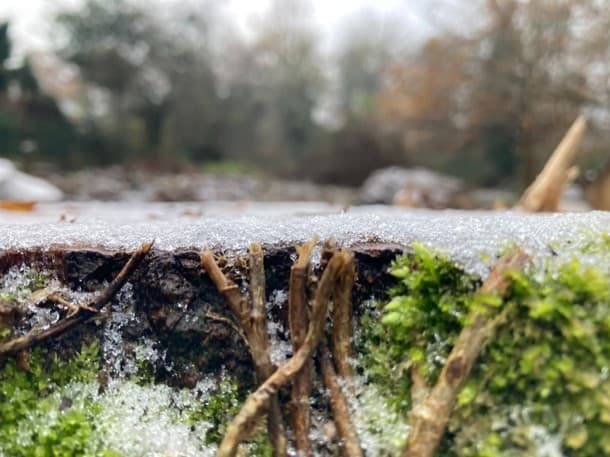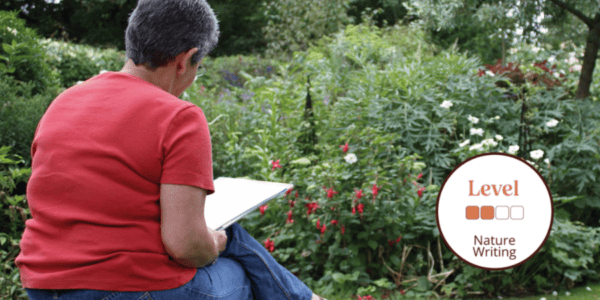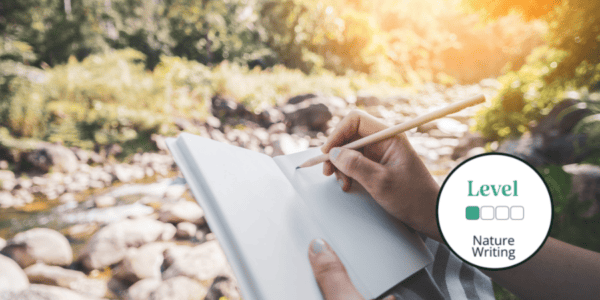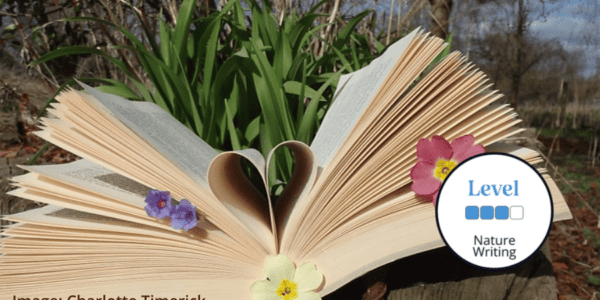This intermediate online course will introduce you to writing nature memoir. You will develop an understanding of the genre and literary techniques commonly used through a wide range of activities that will guide you in honing your own narrative voice and reflection skills.
The course will allow you to connect with your fellow learners, share your work and benefiting from, as well as implementing and evolving, the skill of constructive feedback. You will be exposed to a wide breadth of nature memoirs to inspire you to create your first pieces.
What will be covered during this course?
- People – the writer’s voice: the genre of nature writing and literary techniques used.
- Place – setting the scene: the importance of ‘place’ and its implications for the writer’s perspective.
- Past – working on technique: how ‘past’ is used within memoir writing.
- Present – working on structure: how to incorporate the ‘present’ in nature memoir and experiment with structure.
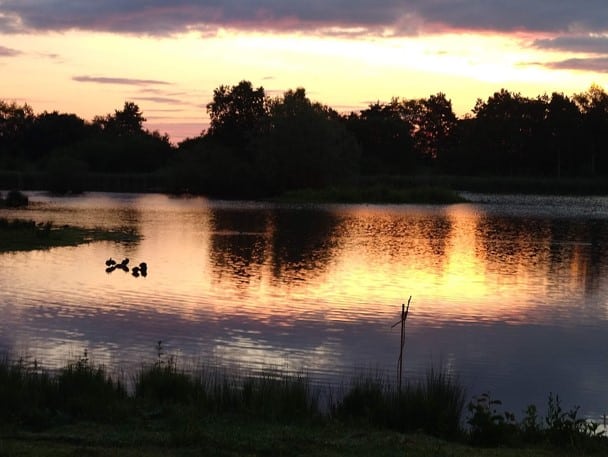
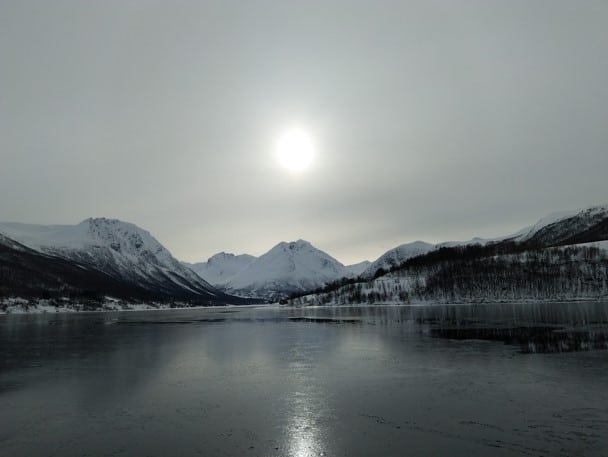
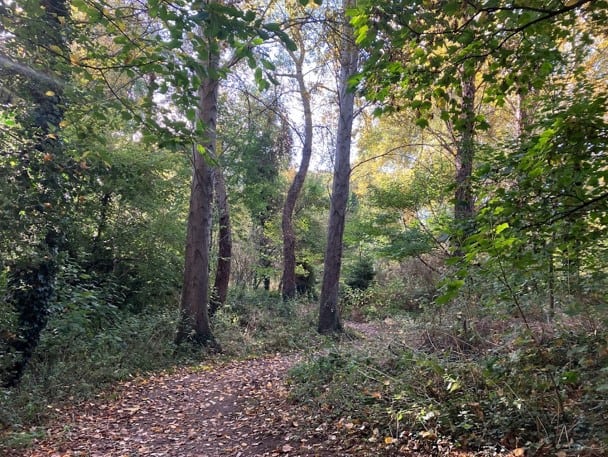
Read More
By the end of the course, you will be able to:
- Demonstrate an understanding of nature memoir as a genre and literary techniques used by nature memoir writers
- Demonstrate an understanding of the importance of ‘place’ and its implications for the writer’s perspective
- Start converting diary to memoir
- Demonstrate an understanding of how ‘past’ is used within memoir writing
- Start crafting a nature memoir from childhood memory
- Incorporate the ‘present’ in nature memoirs and use this to make incisive observations on the current condition of our natural world
- Demonstrate reflection skills on your own work
- Provide constructive feedback on the work of others.
Who Should Attend? – Anyone who wishes to start creating nature memoir, including budding writers, nature enthusiasts, students and volunteers.
Knowledge Level – Intermediate. Level descriptors can be found on the following webpage: Framework and Course Level Descriptors
Prior Knowledge – Existing knowledge and experience is not required for this course, but some experience/knowledge of nature and/or creative writing would prove beneficial. You will need to be willing to respond to the work of others and be receptive of responses to your own work to help one another develop as writers.
Please note – bookings will close 2 working days before the course start date to allow for all participants to be enrolled to the online platform – bookings will not be taken after this time.*
*Bookings will close sooner if course capacity is reached
Understand how our online courses are delivered here.
Live Webinar Information
There are 4 webinars for this course, taking place at the end of each week. Please see the date listing below for the day and time.
Please note – webinars will be recorded and uploaded to the virtual learning platform for learners unable to attend.
About the Tutor
Dr Carolyn Drever
Dr Carolyn Drever is a writer and a teacher with a special interest in English and Outdoor Learning. She began teaching creative writing 30 years ago, has taught in universities and schools, and worked on projects with the Field Studies Council, the Wildlife Trusts and EU Erasmus+. She is currently working with Torchlight Heritage for an event which explores the impact of urbanisation on a rural community in the 19th Century. She is especially keen to promote nature writing in urban community venues through the use of their gardens, emphasising that even the smallest of sites can engage and inspire: https://littlebirdsaid.org
Example Timetable
Timetable
Week 1: People – the Writer’s Voice
Self-study material available from the start date
Week 1 Live webinar at the end of Week 1
Week 2: Place – Setting the Scene
Self-study material available after Week 1 Webinar
Week 2 Live webinar: at the end of Week 2
Week 3: Past – Working on Technique
Self-study material available after Week 2 Webinar
Week 3 Live webinar at the end of Week 3
Week 4: Present – Working on Structure
Self-study material available after Week 3 Webinar
Week 4 Live webinar at the end of Week 4
The final deadline to complete any outstanding assignments and self-study components 2 weeks after the final webinar.
Time commitment: This course will require approximately 4-5 hours of your time each week. This includes covering course materials on our Moodle learning platform and the Zoom session.
What's Included
The course has been carefully created to help you continue to build and develop your knowledge as the course progresses, with content crafted to the online Moodle Platform and bespoke to the Field Studies Council.
The course includes:
- 45-minute interactive weekly Zoom workshops to connect with the tutor and other participants
- Expert tuition for which the Field Studies Council is renowned
- Activities to work on independently in advance of each Zoom workshop
- Tailored course completion certificate
Once registered, you will follow well-illustrated, user-friendly ’books’ to pick up knowledge. Forums give students the chance to interact with each other as well as a place to share work.
Bursaries and Subsidies
Student Discount
This course is eligible for a student discount. If you are a current student, please use discount code BioStudent20 at checkout for 20% off all Biodiversity courses.
Natural History Bursaries
There are a number of natural history bursaries available to help with the cost of your course. To find out if you and your chosen course are eligible, read more here.
Before You Attend
Accessing Your Course
- Once you sign up you’ll receive an email at least 24 hours in advance of the course opening with details of how to access our easy-to-use platform, Moodle.
- Moodle can be accessed through a browser or an app.
- Webinars are via Zoom so you won’t need any new software to attend.
Recommended Devices
It is recommended that you access your course through a PC or laptop. Please be aware that there will be reduced functionality if you decide to access the course through a tablet or smartphone. The Field Studies Council is unable to email content directly to you.
Recommended Equipment
You may want to purchase the below items to enhance your learning experience, but they are not essential for this course:
- Paper, pen, pencil
- Camera / phone for recording images
- Hand lens
Recommended Literature
It is not necessary to have read any of the following books to enjoy this course, but as they are referred to you may want to purchase or borrow some of these texts for wider reading and personal enjoyment. If you are not yet a member of your local library, it may be useful for you to register prior to beginning this course to make accessing the referred to texts easier.
- The Peregrine, The Hill of Summer & Diaries, J. A. Baker (published posthumously 2015)
- Lost Woods, Rachel Carson (published posthumously 1998)
- Waterlog, Roger Deakin (1999)
- Deer Man: Seven Years of Living in the Wild, Geoffroy Delorme (2022)
- Grounding: Finding Home in a Garden, Lulah Ellender (2022)
- Islands of Abandonment: Life in the Post-Human Landscape, Cal Flyn (2021)
- Wild: An Elemental Journey, Jay Griffiths (2006)
- Sea Bean, Sally Huband (2023)
- Modern Nature, Derek Jarman (1991)
- Bird by Bird, Anne Lamott (1994)
- The Outrun, Amy Liptrot (2015)
- A Brush with Nature, Richard Mabey (2010)
- H is for Hawk, Helen Macdonald (2014)
- The Wild Places, Robert Macfarlane (2007)
- Highland Deer Forest, Lea MacNally (1973)
- Small Bodies of Water, Nina Mingya Powles (2021)
- Ghosts in the Hedgerow: A Hedgehog Whodunnit, Tom Moorhouse (2023)
- Fingers in the Sparkle Jar, Chris Packham (2016)
- Write It All Down, Cathy Rentzenbrink (2022)
- A Woman in the Polar Night, Christiane Ritter (1938)
- I Belong Here, Anita Sethi (2021)
- The Living Mountain, Nan Shepherd (1977)
- Braiding Sweetgrass, Robin Wall Kimmerer (2013)
- Wild City, Florence Wilkinson (2022)
- The Salt Path, Raynor Winn (2018)
Opportunities to attend this course
-
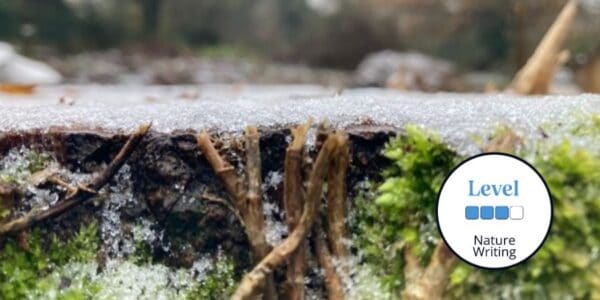
Tue 17, September 2024 - Tue 29, October 2024
The webinars will take place on Tuesdays 7.00 pm - 7.45 pm on the following dates:
- Week 1: 24th September 2024
- Week 2: 1st October 2024
- Week 3: 8th October 2024
- Week 4: 15th October 2024
No current dates for this course? Click here to view all the upcoming Natural History courses.
Progress Your Learning
This is a training course from the Field Studies Council, delivered by expert tutors with an approachable learning style. After attending this course, you may like to progress your learning with further relevant courses or branch out into other areas of natural history. The Field Studies Council offers both online and in person courses, so you can choose the learning style that suits you best.
The course gives you the opportunity to immerse yourself in a new subject and acquire novel skills. Our online portal gives you time to study at your own pace and fit the lessons around your own schedule.
If you have any questions about our courses please check our Frequently Asked Questions or email [email protected].
Group Bookings Made Easy
If you have a group of 10 or more individuals wanting to complete one of our courses, our team are available to discuss your options – from discounts to private team courses. Click here to find out more!
You can rest assured that the absolute best content from an expert in environmental education will be at your fingertips. In choosing a Field Studies Council course, you will be joining thousands of people who learn with us each year.

